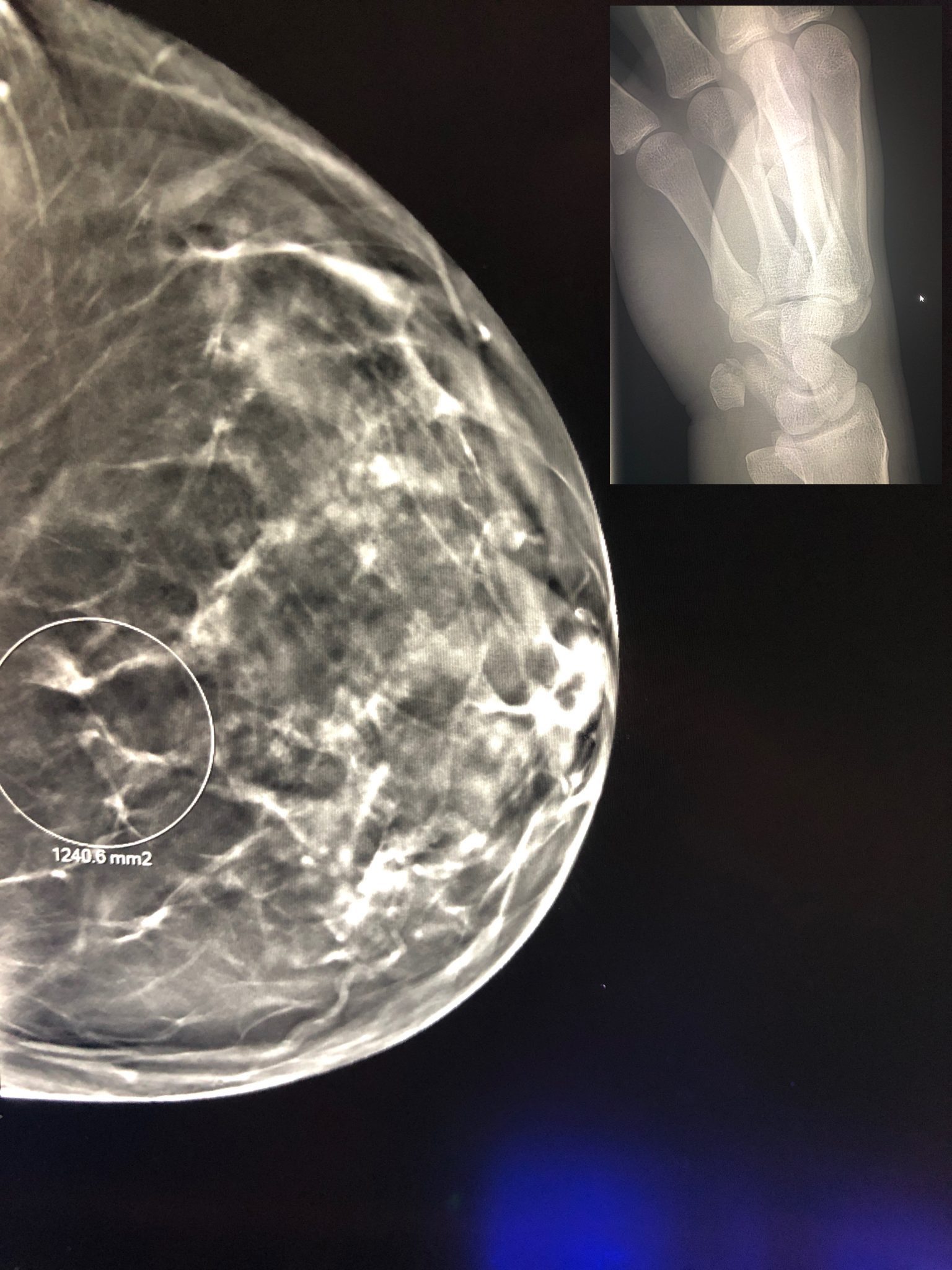
Breast Imaging Versus MSK- What’s Better For Marketability And Lifestyle?



Greetings and salutations,
Thanks so much for your educative content. I have benefited immensely. Please, what is body imaging (Radiology sub-specialty)? What exactly does it mean/entail? How is it different from Abdominal Radiology and Gastrointestinal Radiology subspecialties? And, are body imaging specialists privileged to carry out interventional radiology (vascular and non-vascular) procedures involving the part(s) of the body in which they specialize?
Thanks so much,
Possible future body imager

Since most job seekers look for new jobs for only a few years and the majority of those job seekers are fellows, the collective consciousness of the radiology job market at any given time rapidly fades away. And, when the job market changes, we often forget about what new radiology residents had to deal with only a few years ago. But, talk to radiologists that graduated around 5 or 6 years ago. You will find that many of these folks had experienced a 180 degree opposite job market of today’s when they started to look. Moreover, if you ask them which fellowships they have completed, you shouldn’t be shocked to hear that they finished two of them. In all likelihood, that may have been the norm!
So, the question I pose for today, is there still a role for completing two fellowships? Are there any economic advantages to finishing two advanced subspecialty programs? And, what circumstances should lead a new resident to achieve more than one? You should find this discussion enlightening!
OK. From a monetary standpoint, it no longer makes much sense. Most folks can receive the same pay regardless of whether they have completed one or two, let alone none! And, indeed, the job prospects don’t change all that much nowadays if you have finished one or two. So, let’s scratch that reason off the list.
What about future job security? Well, again, I believe that folks that fellows that have completed two fellowships are just as likely to get canned as those have finished one. If you are an excellent radiologist, it should not matter much. And, you can be a lousy radiologist regardless of if you have one or two fellowships. Additionally, I can make the argument that some less competent radiologists have completed two advanced programs because they did not feel comfortable initially starting in the job market with just one. So. let’s nix that reason as well.
How about allowing you to do what you want in practice? No, most jobs have a niche that they need to fill. And, they will meet the demand regardless of the number of fellowships you complete. Sure, you may find a job that advertises for someone that could perform two specialties competently. But, by no means in most cases, do you need to complete two fellowships to fill the position. Those positions tend to be more general. And, it probably does not matter if you have graduated from two subspecialty programs.
Honestly, I could come up with three main reasons for completing two different fellowships in the market in general. And, one reason specifically for economic reasons.
So, let’s start with the economic reason. (Does not apply for the current market!) When the job market is terrible, you may need two fellowships to stand out from the crowd. And, precisely, that situation happened five or six years ago. It was not uncommon to find these applicants at that time.
Next, some folks choose the wrong fellowship from the get-go. I know of one interventionalist that never really liked it much. And, this person practiced for years and years with the hope that one day she would grow into it. It never happened. So, she chose to start from scratch at a different fellowship. That could make some sense in certain situations.
What else? Say you want to bolster your academic credentials. Well, in the game of academics, numbers of papers, lectures, abstracts, and even degrees matter. And, yes, having an additional fellowship is like having an extra degree. It has the potential to boost your academic prospects in that sort of venue. (A bit different from my world!)
Based on our short discussion, the answer is sometimes. And, for most people today, that want to set out into the world of radiology, two fellowships is most likely overkill. But, there is a time and a place for the second fellowship. The question is: is it yours?

Let me clear up the facts for all the radiology residents that are thinking about fellowships in this market: Just like any other job market, the number of radiology attending positions available is subject to market forces. Moreover, this prolific job market will not last forever. To support these claims, in my medical career, I have seen two job cycles, trough to peak. And we are sure to see others. It’s just a matter of time.
So, how does the changing job market impact the topic for today’s blog, the necessity of fellowships? Well, I have a bit of explaining to do.
Back in the early 2000s, when I completed my residency at the last market peak, great jobs were everywhere. California, New York, and Florida were no exceptions. The theme of the job market was: “Name your price!” And, I can distinctly remember the heated discussions in the reading room about whether fellowships are necessary.
Well, it’s happening again. All you need to do, go to the recent forums on Aunt Minnie on the topic. Or, you can stop by my residency program. You will hear a few passionate debates on the matter. (We had this discussion during noon conference a week or two ago!) Regardless, I think this is a prescient indicator of a market peak. Not that it means we will experience a sudden downturn. But, we are riding somewhere along the top of the curve.
So, what happened the last time around the market went from peak to trough? Well, if you took a poll of radiologists without a fellowship, I believe a higher percentage of these folks would have had more issues with their career than those with one. Therefore, I am going to throw a bit of proverbial cold water on those of you who are thinking about going down this non-fellowship path by telling you why.
For better or for worse, those radiologists without a specialty tend to have less control over their domain of practice. Don’t like mammo and plain films? Well, you can’t say you are an expert in another area that you enjoy more when you are starting your career. So, guess where the practice will want to place you!
If you want to have a better chance of securing a job in the more populated portions of the country, you will have a much better shot if you have a fellowship. I can certainly speak for my part of the country, New Jersey. It’s possible, but good luck finding a quality position without one!
Now, this may or may not bother you. But, many radiologists like their colleagues and referrers to perceive them as experts in a particular area. Clinicians know individual radiologists and ask for them by name because of their fellowships. That will be less likely to be you!
Once you have already been working as a full-fledged radiologist for a while, it becomes much more traumatic to start anew as a fellow. You may have a family. Or, perhaps you have become accustomed to the lifestyle of a radiologist. It’s hard to go back and do a fellowship once you’ve started your career!
And finally, you may not want to hear this, but as an employee of a practice, when the reimbursements turn down and the market becomes sour, who is the first to go? Well, it’s not likely to be that expert in neuroradiology who the neurosurgeons love. And, it’s not going to be the nuclear radiologist who performs complicated radiopharmaceutical treatments on the referring physician’s patients that the practice cannot replace so easily. Hmmm. Who can be ousted the most quickly without a significant impact on the business? That person is much more likely to be you!
I get it. You’ve been out working for so many years. And, you’ve become impatient. Maybe, you have a family and want to earn a real living. But, in the long run, it’s not worth the additional risks that you will take by not completing the additional training. So, think again before you choose to enter the job market without a fellowship now. You may regret your big decision later in life!


Join our mailing list for free to receive weekly articles and advice on how to succeed in radiology residency, the best ways to apply, how to have a successful radiology career, and more. Also, get a copy of the free ebook Called The New Attending Physician Guidebook: How To Search For The Right Job And What To Do Once You Start.